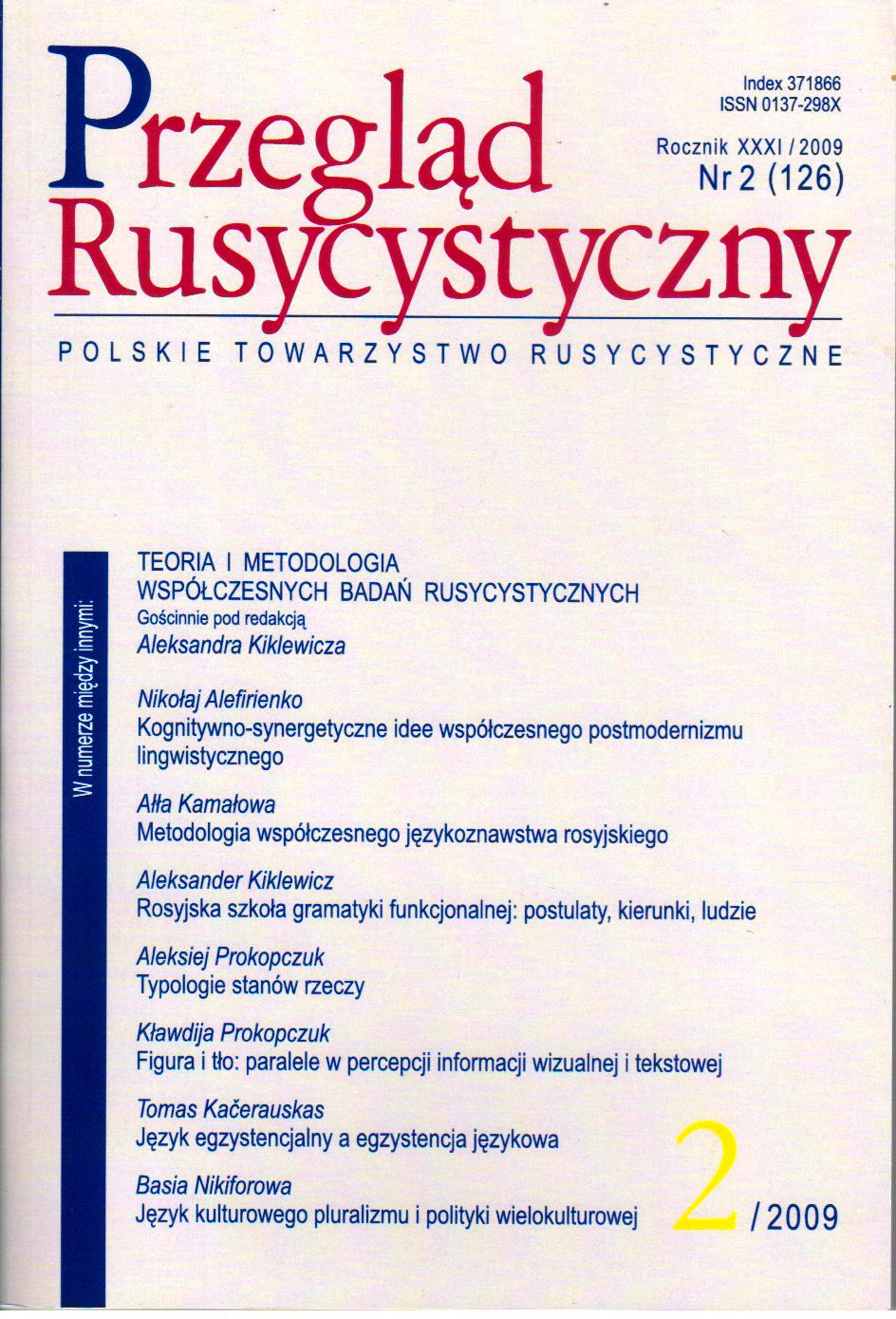„Filar postawy anty-bożej”. Immanuel Kant w horyzoncie myśli filozofów rosyjskich (z Pawłem Florenskim w tle)
"A pillar of anti-God attitude". Immanuel Kant on the horizon of Russian philosophical thought (particularly that of Pavel Florensky)
Author(s): Jerzy KapuścikSubject(s): Philosophy, Language and Literature Studies, History of Philosophy, Philosophical Traditions, Philology
Published by: Polskie Towarzystwo Rusycytyczne
Keywords: Immanuel Kant; Nikolai Karamzin; Pavel Florensky; Silver Age; Russian philosophy; Koenigsberg;
Summary/Abstract: The article is an attempt to present the attitude of Russian religious thinkers to the teaching of Immanuel Kant on the problem of the limits of gnoseology and the critique of cognition based on the rational element, as well as to his metaphysics of morality. The interest in Kant’s philosophical system in Russia, which dates back to the visit of Nikolai Karamzin in Kant’s house in Koenigsberg in 1789, developed in the first half of the 19th century and reached its apogee at the turn of the 19th century – the Silver Age of Russian culture. The Russians perceived the author of the Critique of Pure Reason as the inventor of “true” philosophy, which had general significance. The article does not aim at specifying strict limits of interest in Kant, but looks for its source. Doubtless, it was the period of Romanticism, with its other popular idealistic philosophers such as F. Schelling and G. Hegel, that contributed to the reception of the great German philosopher in the spirit of universalism. They were considered to be discoverers of a new way of thinking, oriented to individual freedom and based on two elements — reason and “ideal intuition.” Among the philosophical systems, the one developed by Kant proved to be particularly long lasting. Regardless of the contradictory assessments by Russian religious thinkers, he has been regarded as the teacher of Russians until today. They criticized him, however, for excessive confidence in human reason and for questioning the divine order of the world. The article discusses in detail the sources of the Russian “weakness” for Kant, who combined the strictly logical thinking and the idea of God as a peculiar “thing in itself” or, in other words, a postulate of practical reason. The understanding of individual freedom by the Koenigsberg scholar met with the polemic of Russian thinkers too, who represented a “we philosophy”. The author of the article notes that the problems of Kant’s metaphysics of morality, which assumed that man “makes himself,” as well as the gnoseological issues, such as understanding of the truth and limits of cognition, evoked a sharp critique of Pavel Florensky — one of the most prominent philosophers of the Russian Silver Age.
Journal: Przegląd Rusycystyczny
- Issue Year: 2008
- Issue No: 122
- Page Range: 46-75
- Page Count: 30
- Language: Polish

